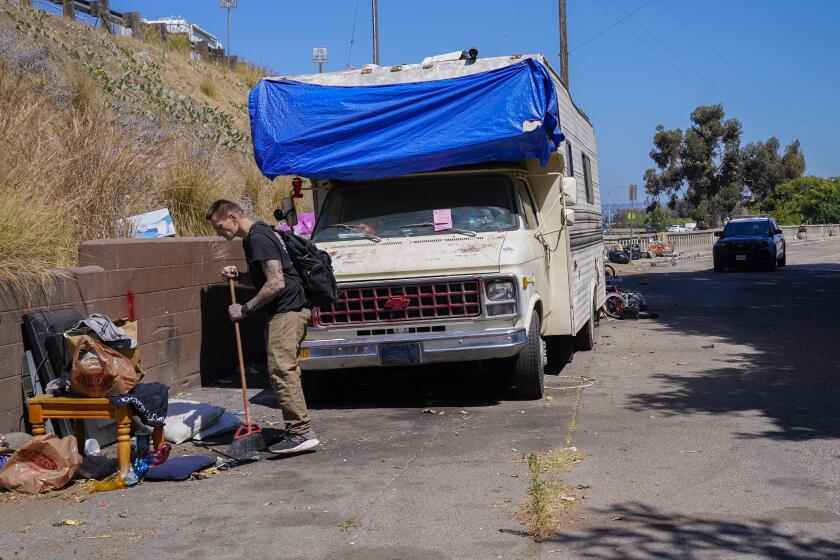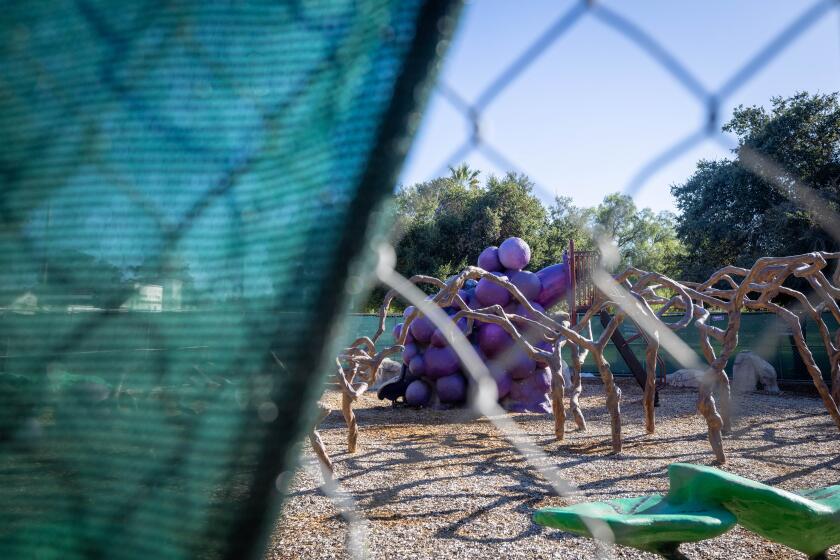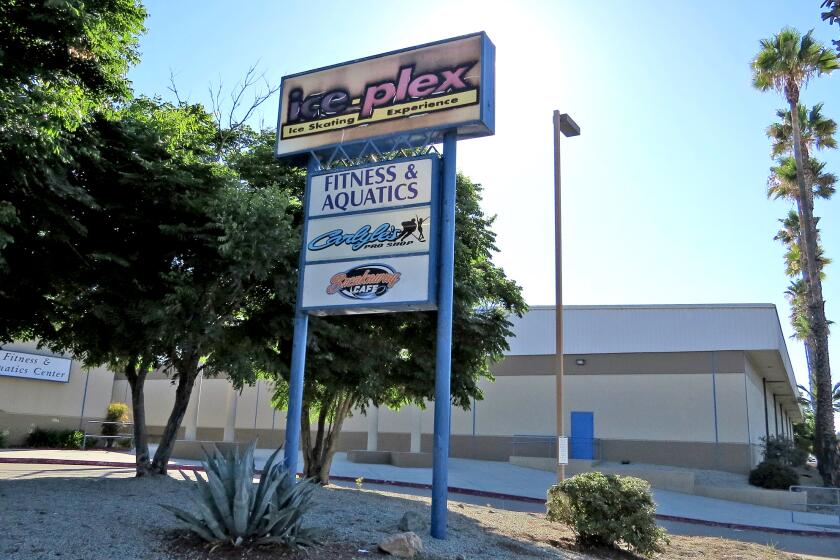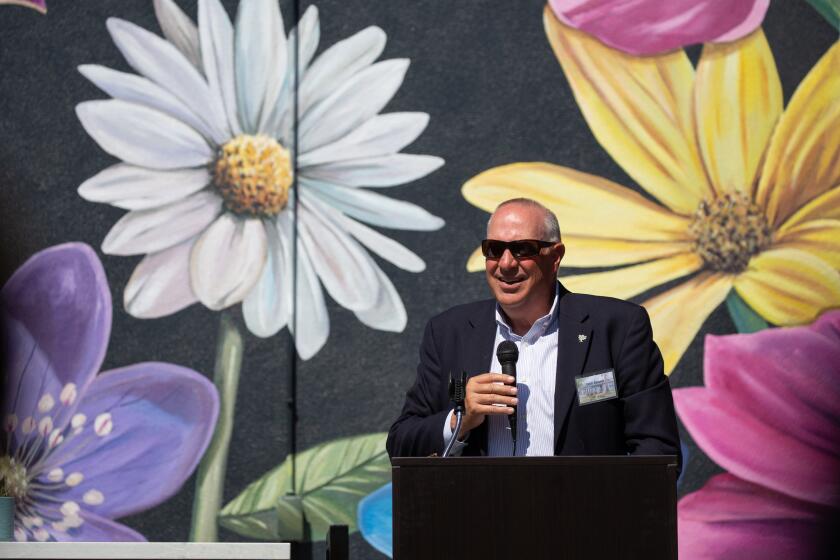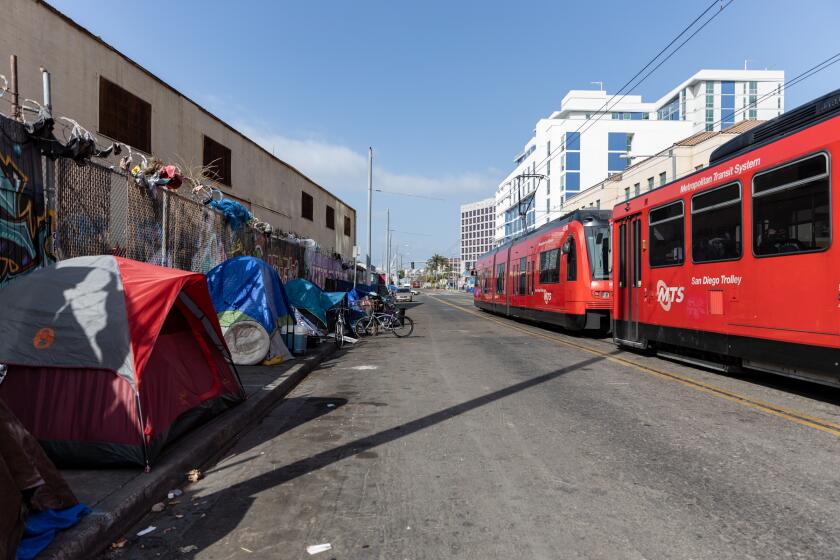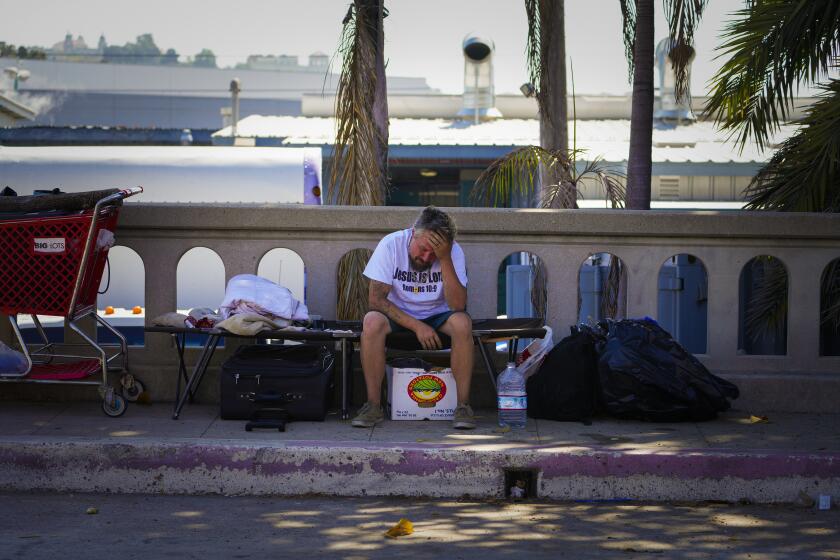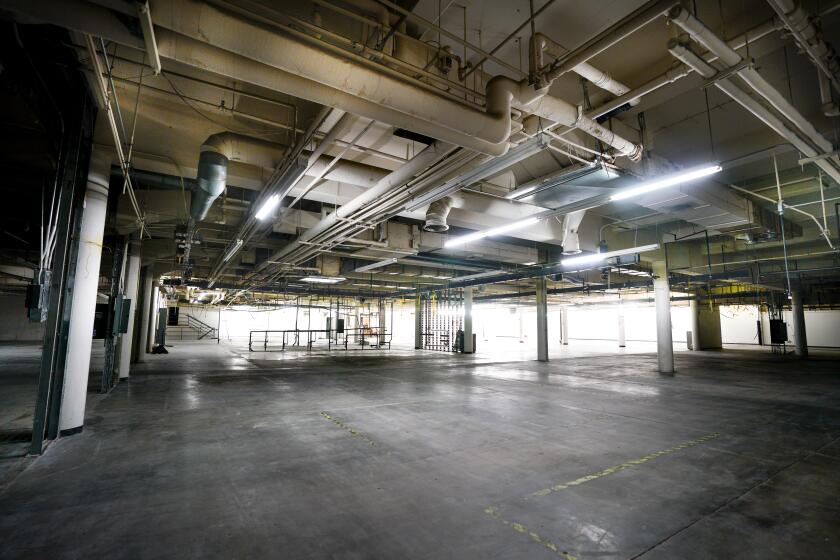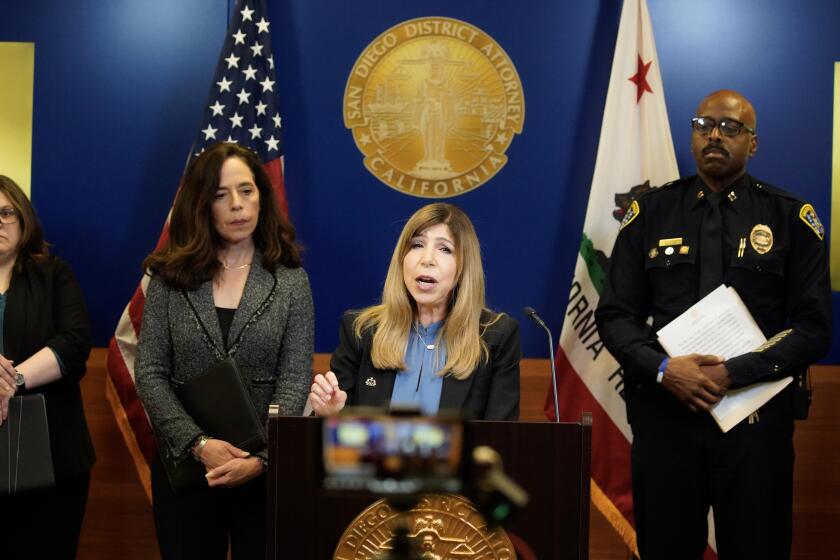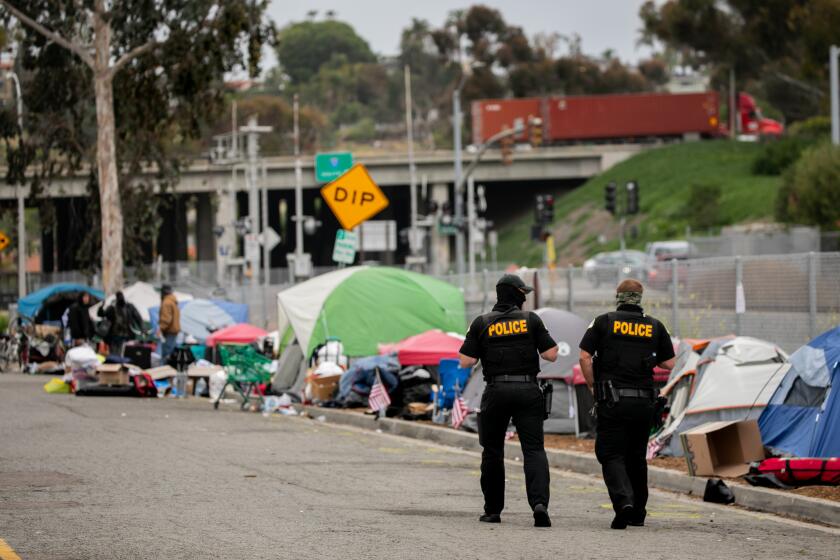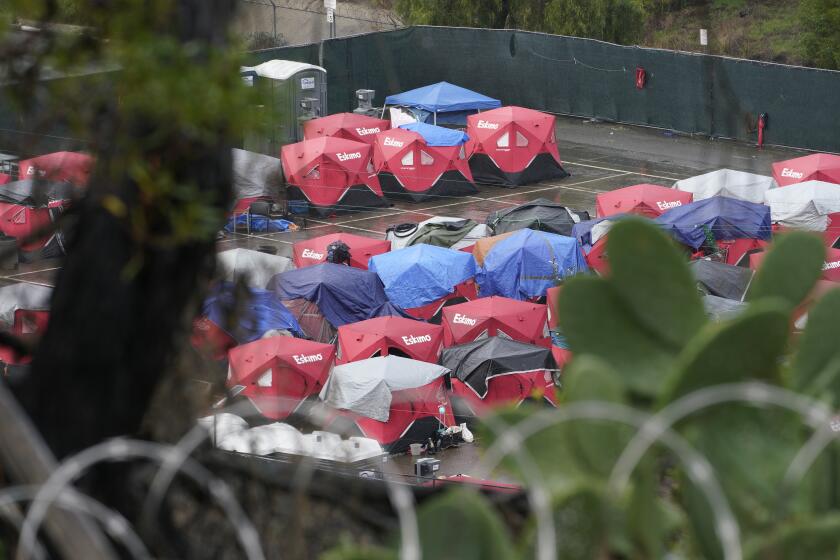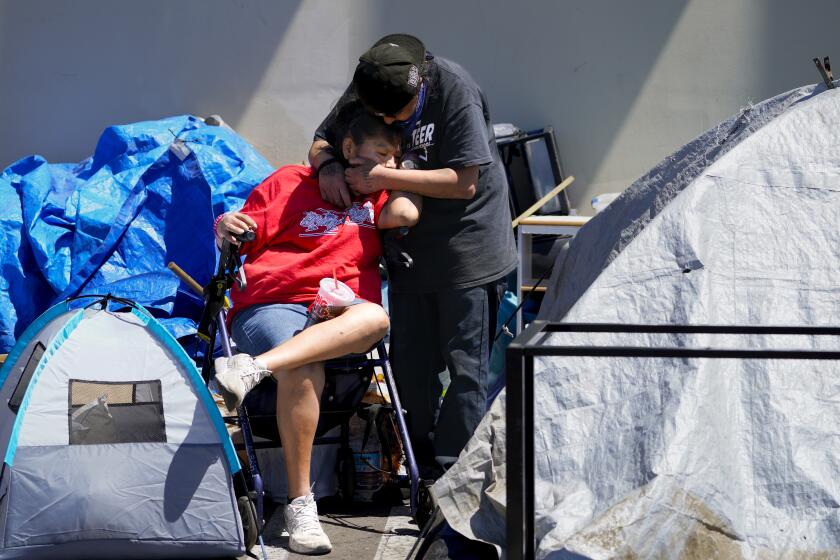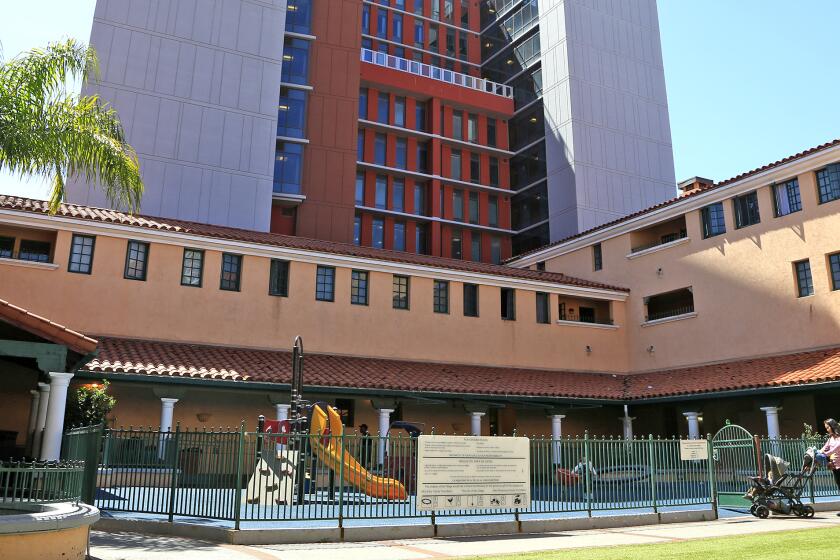San Diego offers some relief on parking citations for homeless drivers
San Diego has revised a program to help homeless people facing parking citations, but some advocates aren’t impressed with what they see as a token effort.
More homeless people will have outstanding parking ticket reduced or relieved through a program that is being expanded in the city of San Diego.
The city’s Clean Plates program has been around since 2015 and already has helped 63 homeless people with 542 parking tickets, according to a news release from Mayor Kevin Faulconer’s office.
Revisions to the program will make the process faster and easier while also making more people eligible, Faulconer said.
“Reducing barriers for homeless individuals looking to get back on their feet is critical to ending the cycle of homelessness,” Faulconer said in the release. “Combining this program with the Homeless Court will allow more folks to get rid of parking fines and on the road to a better life.”
Homeless Court was created in 1988 as a way of helping homeless people already in programs to clear fines that could hold them back from becoming self-sufficient. Outstanding fines can prohibit people from getting a driver’s license, create obstacles in getting housing and employment, and may even lead to arrests.
Clean Plates addresses similar concerns and was created through a memorandum of understanding among the City Treasurer’s Office, the City Attorney’s Office, the San Diego County Public Defender’s Office and the Homeless Court Steering Committee.
In its original structure, only people who had gone through Homeless Court to relieve misdemeanors or infractions other than parking tickets could apply for Clean Plates. The recent revision allows judges to hear requests to reduce or waive parking tickets as part of Homeless Court.
In another change, newly issued tickets also may be reduced or waived in the Clean Plates program. The previous version applied only to past-due tickets.
Finally, the previous program required people to have completed a program with a service provider, while the revision allows them to participate if they haven’t yet completed the program, but are close.
Clean Plates only affects tickets issued in the city of San Diego, and people who already have gone through the program are not eligible to repeat it.
Deputy Public Defender Matthew Wechter said he’s not sure how many more people may apply for the program under the new revision. The next Homeless Court will be in September, and the calendar has only one person with parking tickets scheduled.
“Nobody has done a specific projection, but we’re going to try to do as much as we can so people can remove some barriers,” he said.
“I can tell you anecdotally that I get calls frequently to the Homeless Court phone number from people who have parking tickets,” he said. “Previously, I had to tell them, ‘You have to go to Homeless Court first.’”
Even with the changes, the program has its critics.
Michael McConnell, a homeless advocate often critical of the city’s enforcement of laws that target homeless people, said the change was a token effort.
“Our city’s strategy of aggressively criminalizing homelessness has been a failure and wasted a significant amount of resources that could have been used on services and housing,” he said. “We need to make significant changes in how we approach this crisis, not token efforts that make better press releases than actual progress.”
Attorney Ann Menasche, who has represented homeless people who have been ticketed because they live in recreational vehicles, said the program would not help her clients because it is only offered to people who have gone through certain programs.
“It requires that people with disabilities and the elderly in RVs run around town, join programs that may have nothing to offer them, and seek relief from tickets, only to get more tickets the next night,” she said.
Steve Binder, a retired deputy public defender who helped created Homeless Court, applauded the expansion of Clean Plates.
“It’s a big step forward, and hats off to the city for working with people who they know are having a hard time,” he said, adding that it doesn’t make sense for the city to try to collect money from people who don’t have any.
Get Essential San Diego, weekday mornings
Get top headlines from the Union-Tribune in your inbox weekday mornings, including top news, local, sports, business, entertainment and opinion.
You may occasionally receive promotional content from the San Diego Union-Tribune.

